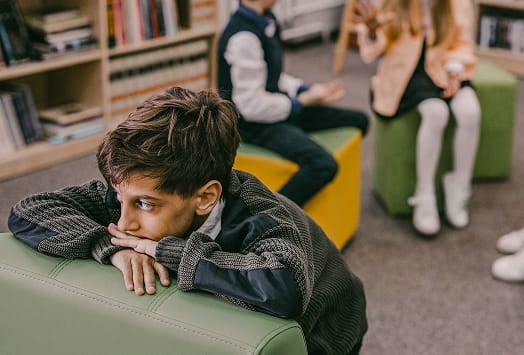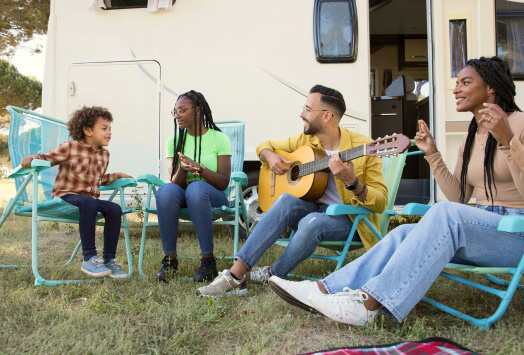Feel like you’re spending every waking moment with your child these days? You can probably tell that it’s not the best thing for your sanity — but you might not realize that young children need time on their own, too.
Independent play has benefits that last a lifetime for kids of all ages. Here’s how to help your child grow (and carve out some time for yourself along the way) by teaching them how to play on their own.
Is it OK to let my child play alone?
You might be worried about leaving your child alone for longer than a few minutes. Or you might have heard that good parents constantly offer stimulation to their little ones. But don’t feel guilty about giving your child independent play time — it’s just as important to their development as spending time with you is.
When kids play alone, they can explore at their own pace, make and learn from mistakes, and grow their self-reliance and self-esteem. All of this strengthens kids’ sense of identity, which can help them resist peer pressure and build genuine relationships down the line.
At what age should a child play independently?
Independent play is great for kids of any age. Babies under one year old shouldn’t be left completely alone, but you can stay nearby while they play by themselves and check in supportively every once in a while to make sure they feel safe. As your child gets older, you can go farther away and eventually leave them completely alone (while still remaining close enough to check in and monitor whatever’s happening).
Generally, older children can play by themselves longer than younger children can. Six-month-olds may only be able to occupy themselves for five minutes, while two-year-olds could be perfectly happy on their own for half an hour. Don’t forget to take the specifics of your child’s personality into account — calmer, more collected kids might do better on their own at a younger age than kids who are more demanding.
How do I teach my child to play on their own?
So how do you get your child comfortable on their own? Here are three tips for opening up a new world of exploration and growth with independent play.
1. Let them know you’re there for them
To get your child comfortable with being by themselves, you first need to make sure they know you’re there for them. Before leaving them alone, play together for a while and give them plenty of reassuring attention. Then, if you’re worried that they might feel like you’re turning your back on them, you can stay involved in their independent play at a distance by asking them to make something for you or another adult.
If your child shuts down when you leave, try easing them into independent play in intervals. Play together for a little while, leave briefly, then come back and play together some more, until your child understands that you aren’t leaving for good. Then they’ll be able to relax and focus on having fun.
2. Set the stage for play
Encourage your child to find their own opportunities to explore by leaving “invitations to play” around your home:
- Put paper, crayons, and other art materials out on a table ready to go.
- Set up a scene with toy cars, dolls, or other favorite toys.
- Build the beginnings of a Lego structure.
- Clear out a “movement zone” — move furniture away and gather soft things (like pillows, blankets, yoga mats, and sleeping bags) for fort construction in an open space.
- Put out costumes and other props for pretend play.
3. Get messy
Few things capture kids’ imaginations like tactile, sensory play. So lean in and don’t be afraid to let your kids get messy with sand, water, clay, paint, or whatever they can dream up. If you’re worried about cleanup, you can limit such play to an area like an entryway, mud room, or bathtub.
4. Keep at it
Before the COVID-19 pandemic and social distancing, busy schedules and regular screen time were the norm for many kids. So don’t worry if your child doesn’t get the hang of playing by themselves right away — they’ll grow into it if you create the right conditions and let them keep at it.
And if you start to feel left out, stay strong, enjoy your alone time, and remember that independent play is an important opportunity for your child to grow. Rest assured — they still need you!
Looking for fun new activities to keep your child engaged (and occupied) during the holidays? Try one of these great virtual holiday classes for kids on Sawyer!
















